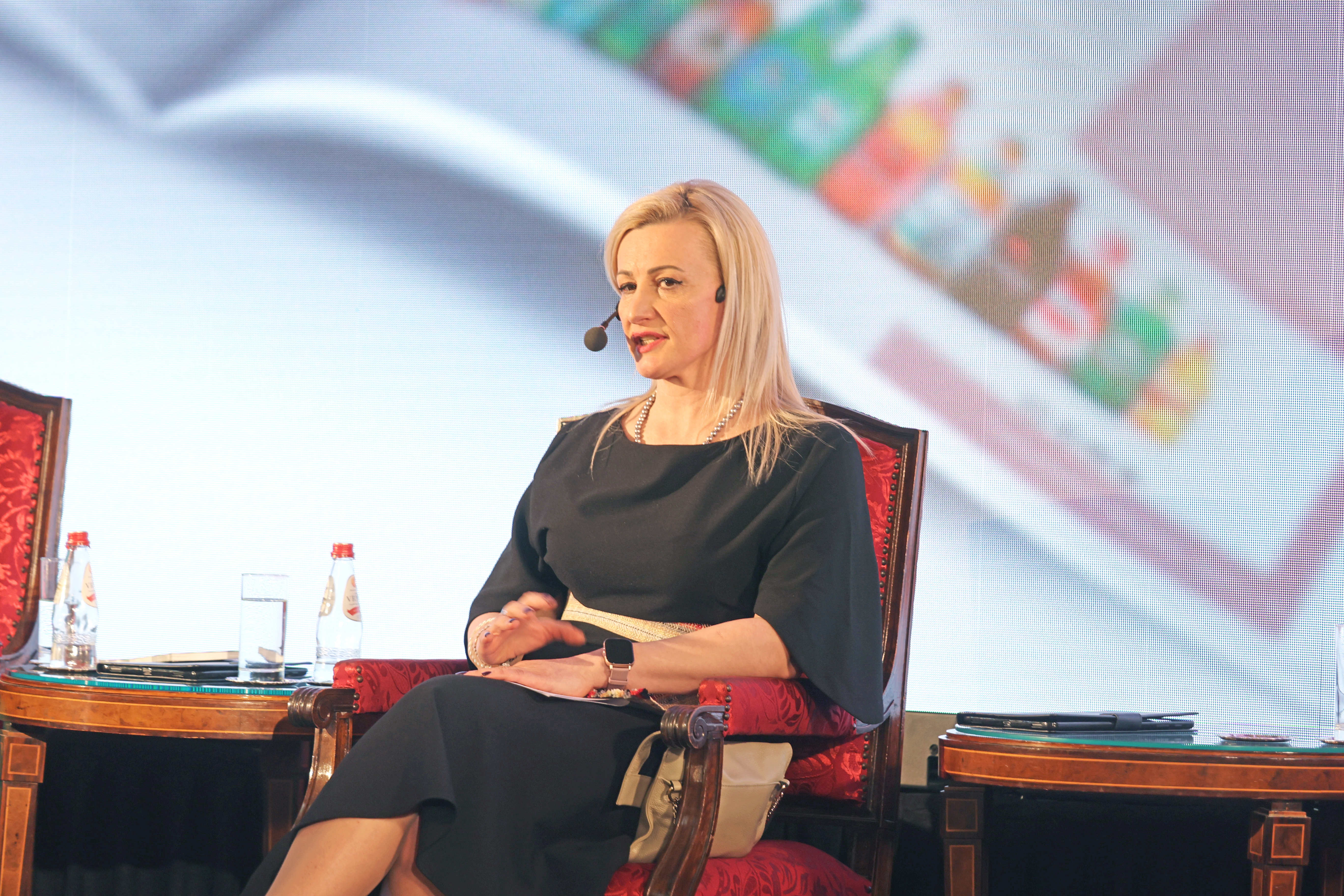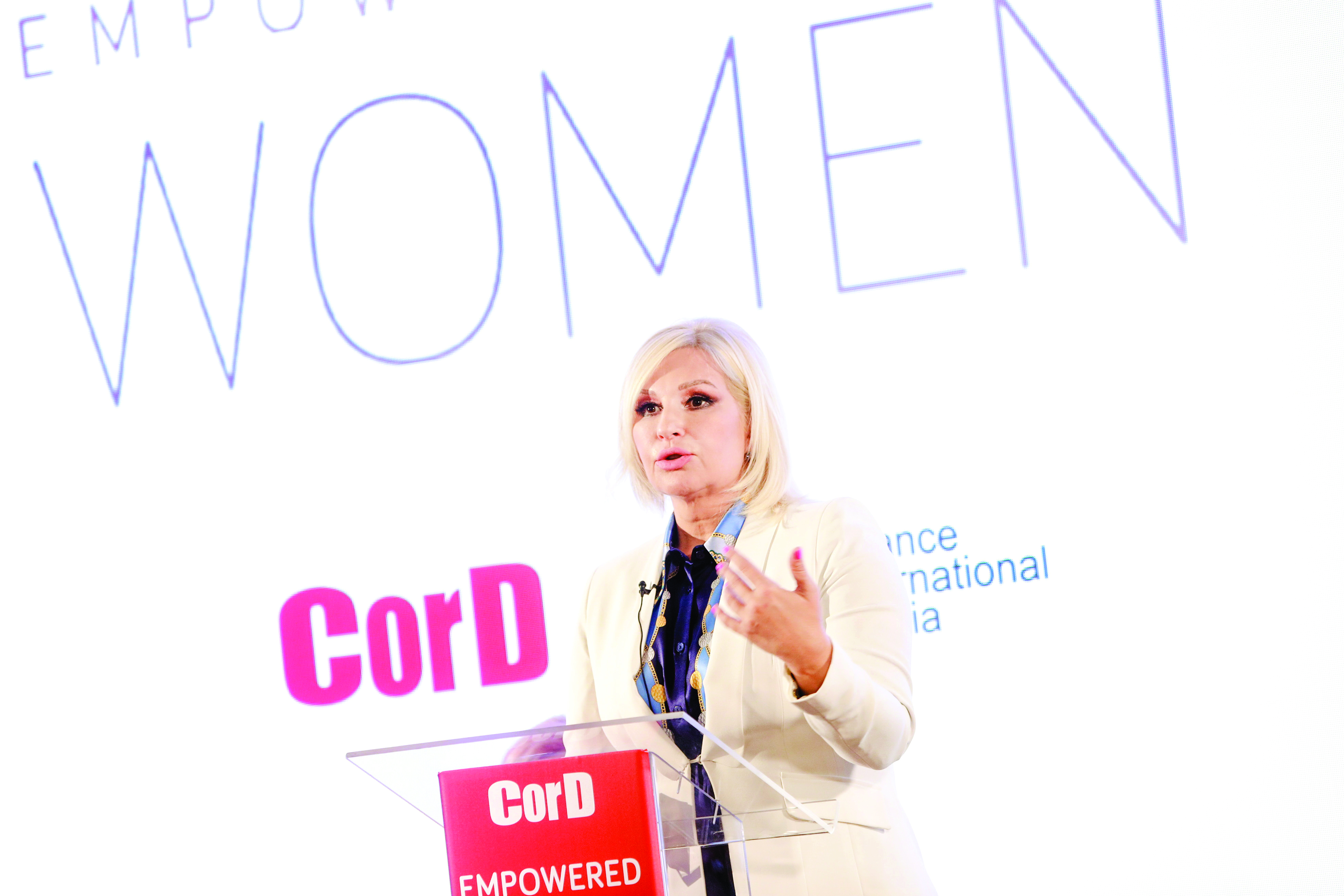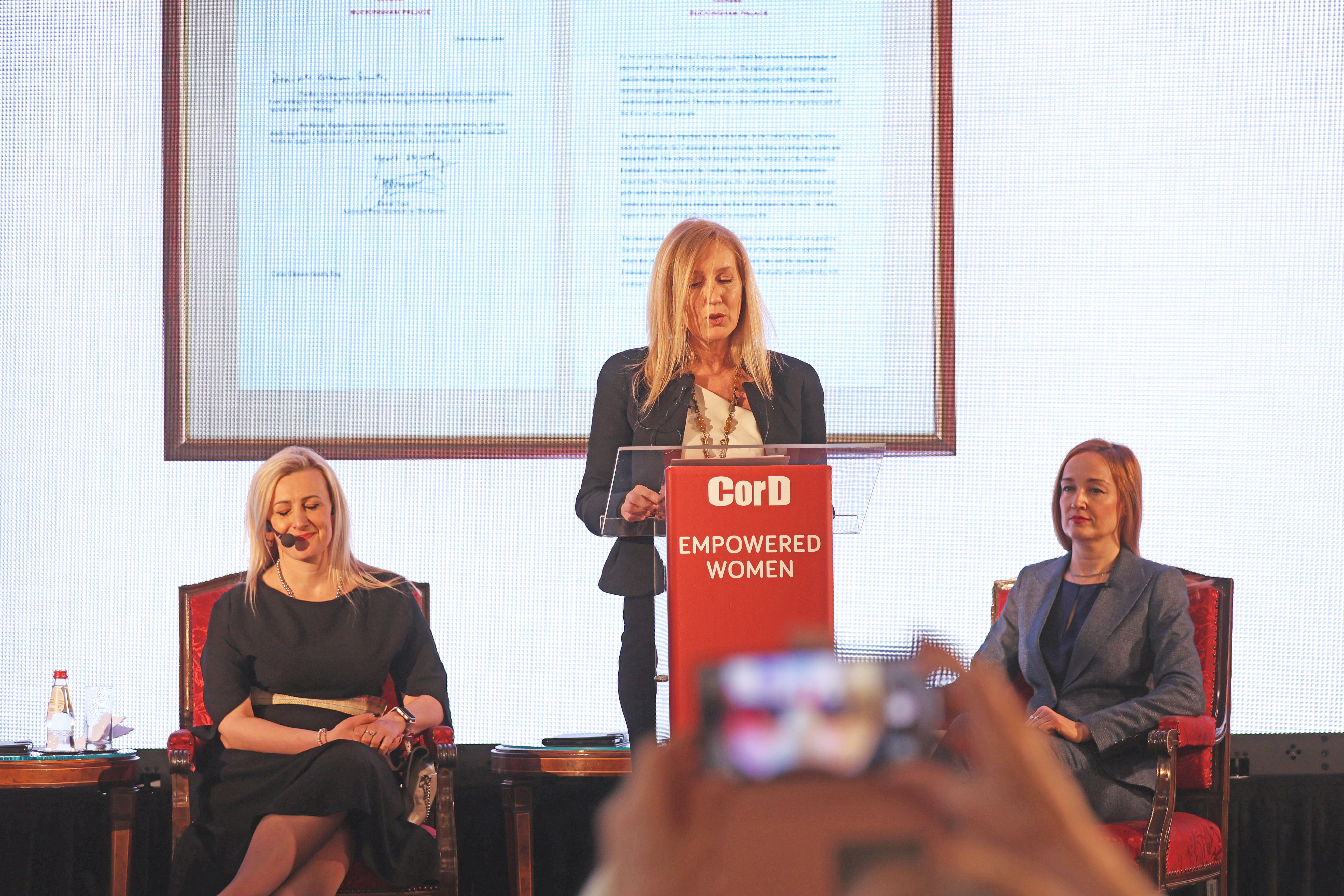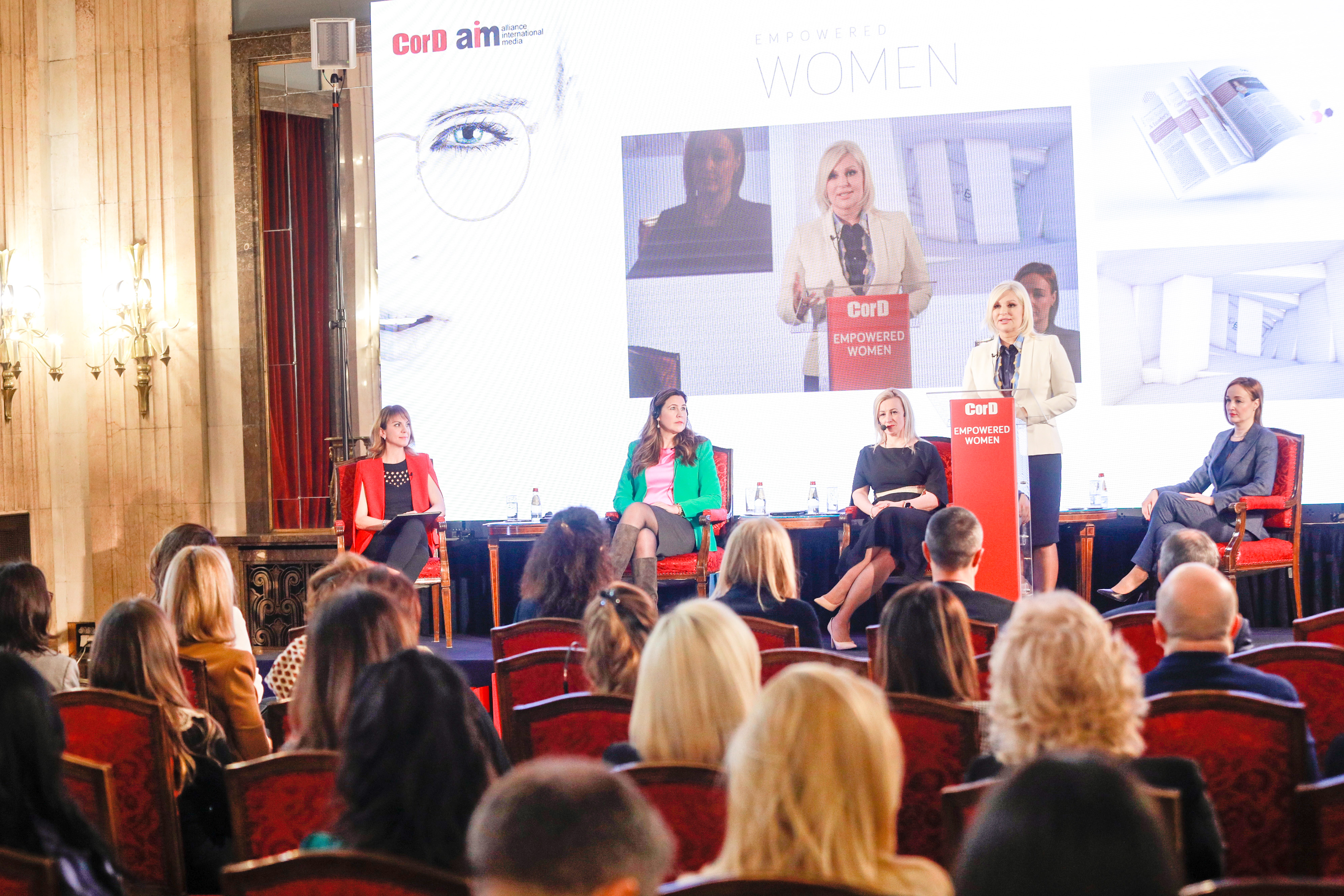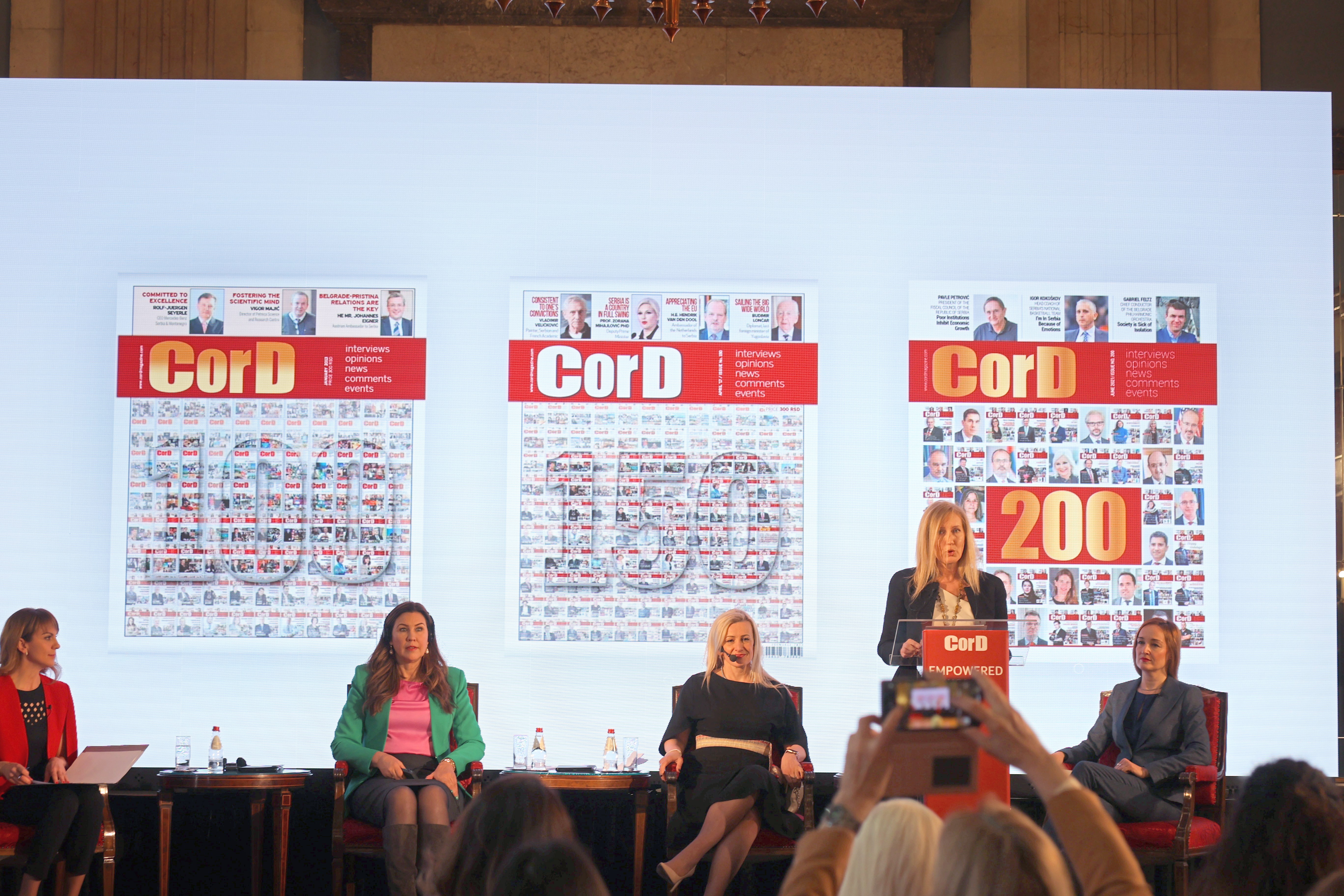The economic empowerment of women is within the field of national interest
Economic empowerment of women and labor equality is within the field of national interest, having in mind that women make up half of the total population. Currently, we see the progress in this area as a half-full glass.
- In the previous years, many steps have been made in the positive, from the establishment of the Coordination Body for Gender Equality and the Commissioner for Protection of Equality to the adoption of the Law on Gender Equality and numerous programs and campaigns to raise awareness of this topic, said NALED Executive Director Violeta Jovanović at panel discussion Empowered women, organized by CorD magazine on Tuesday, March 22 at the Belgrade City Assembly.
Jovanovic emphasized that the first obstacle to achieving better results in strengthening the position of women in society is an economic imbalance, which represents the main threat to equality.
- The fact is, women, own only 24% of real estate, while every fifth company is owned by women and every third entrepreneur - this is due to women mainly engaging in the service industry rather than in production. In the south, the data is even more alarming because three out of four women in the countryside are not paid for their work and 60% of them fail to exercise their right to a pension.
Another obstacle is stereotypes that also place a burden of expectations on women, to take on household chores and gender-imposed roles, and give up personal ambitions and their careers. We need to have as many women as possible in public life, as decision-makers. The message to all women is to present their results without hesitation, to be enterprising, and not to leave those results to men - said Jovanović.
According to the executive director of NALED, more and more women are holding public offices in politics and the economy. Although, these examples aren’t highlighted enough to create role models for other women to follow, organize campaigns and mentoring programs, and support working mothers and women entrepreneurs. She especially pointed out the lack of women in the field of sports management. Jovanovic added that the situation, locally, is even more difficult. Women are often in senior positions in local governments, taking over as head of government, running the Office of Local Economic Development, but finding it difficult to lead cities and municipalities.
The meeting was opened by the Deputy Prime Minister of the Government of Serbia and the Chairperson of the Coordination Body for Gender Equality, Zorana Mihajlović, she assessed that the regulatory framework is the basis for faster progress. She, also, reminded us that we are the first country outside the European Union to measure the level of gender equality, and every year we are making progress.
- Our task is to enable women to come become decision-makers, to help women to be better represented where key questions are being negotiated or talked about. Our struggle is very important because we are aware of how every aspect of society affects us and our lives. The salary gap is something that the Coordination Body is particularly concerned with. Today, it is 15% in Serbia, and no matter how low it seems, in reality, it is worse. When women finish college and get a job, they manage to do the same job, under the same conditions as men, until they reach the age of 30, as they get older, it is harder to get promotions, and when it comes to retirement, the salary gap reaches more than 50%. That is why we need to show that women should be equally included and that they are not less valuable than men and that all women deserve the same conditions - said Mihajlović.
The Ambassador of the Kingdom of Sweden in Serbia, Anika Ben David, highlighted during the discussion that gender equality is not just a question for women but the whole society and that we should work on men and women sharing responsibilities, rather than helping women, citing the example that the 18 months maternity leave should be shared by spouses.
- Several decades ago, our legislators realized that a small country like Sweden with only 10 million people cannot succeed if it does not draw all the resources of the entire human capital at its disposal. We cannot afford to not educate our wives and girlfriends and to block them economically and politically. The civil sector started the movement, and the legislators followed changing the mentality. Today, gender equality is not a controversial topic in Sweden. When I joined the Ministry of Foreign Affairs in the mid-1990s, only 10% of ambassadors or department heads were women, today that number is 47%. I think Sweden is a good country for girls to grow up in and for women to work in, but the situation is far from ideal. We still have a way to go. Violence against women, unequal salaries, are still present and in these areas, there is not much difference from Serbia - said Ben David.
The executive director of the American Chamber of Commerce in Serbia, Vera Nikolić Dimić, added that in times of crisis, vulnerable groups are the first to be hit.
- The burden of covid has fallen much more on women, and the pandemic has shown that differences still exist and that we must culturally change behavior because doing it by law is not enough. Girls are the best students in school, a large percentage of them enroll and graduate from college, with greater success than men. But, during their career that success declines and that is why more empowerment is needed. It is up to our partners to give that support, and it is up to the women not to withdraw. Although we see a lot of women in management positions, the question is whether these are positions of power since men still largely take on positions in top management - said Nikolić Dimić.

